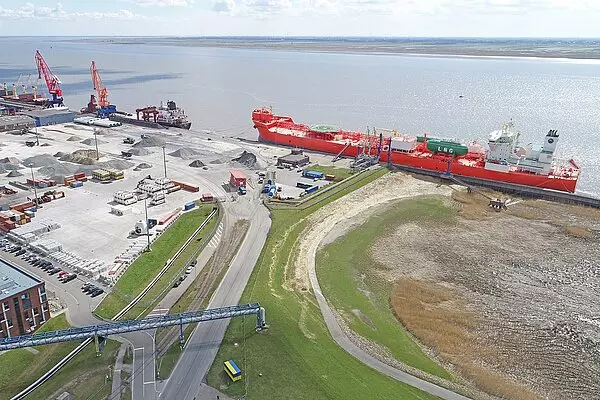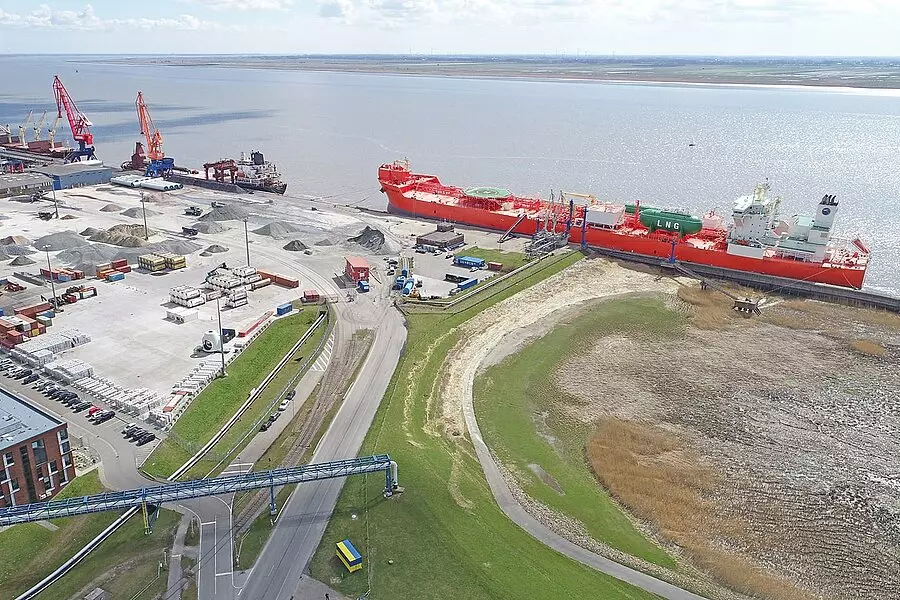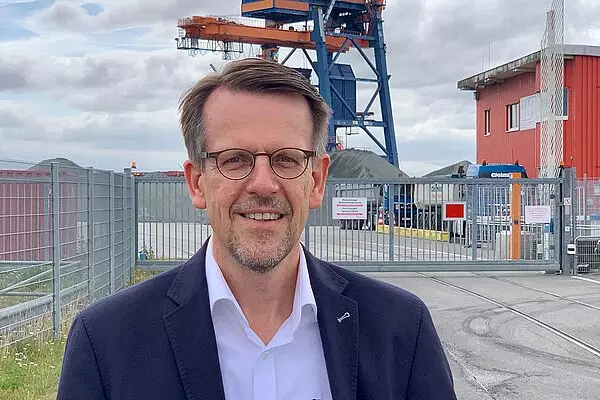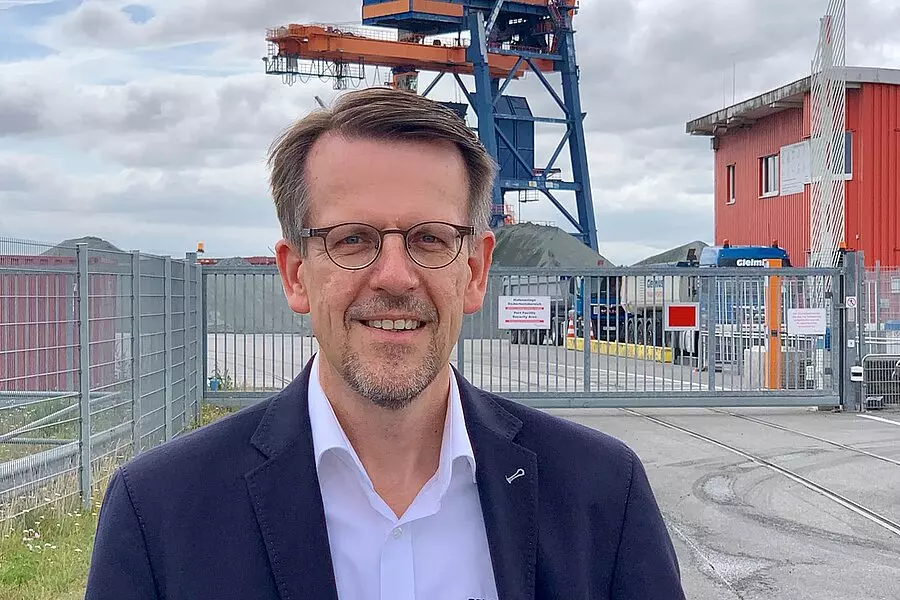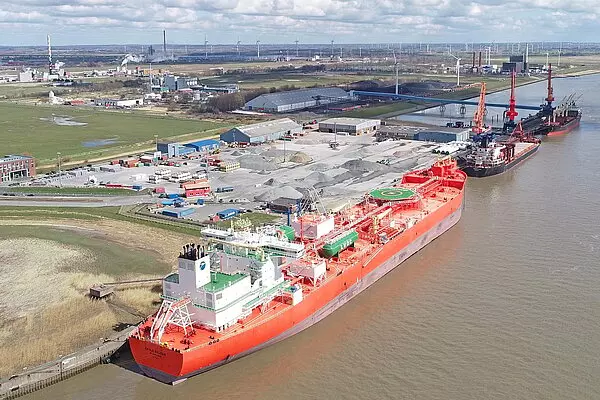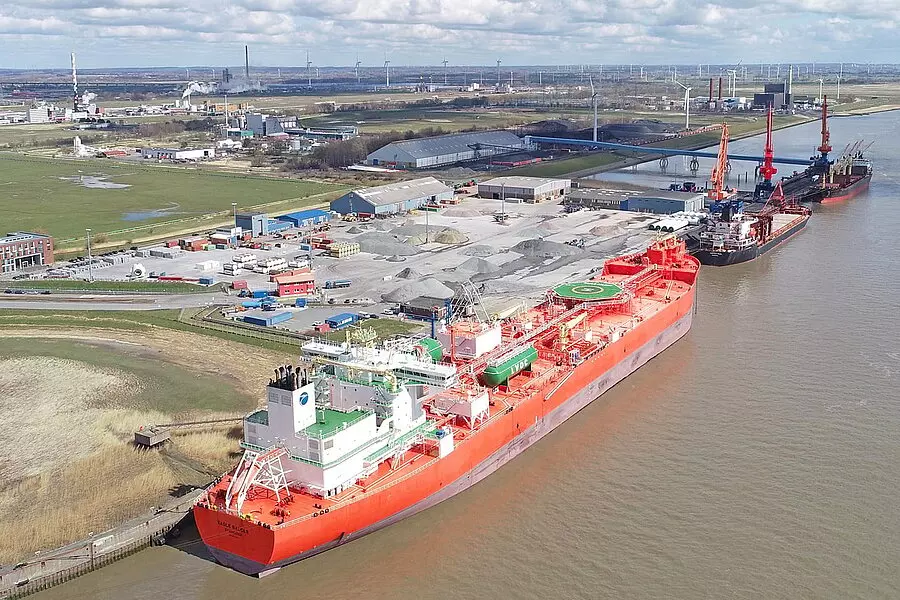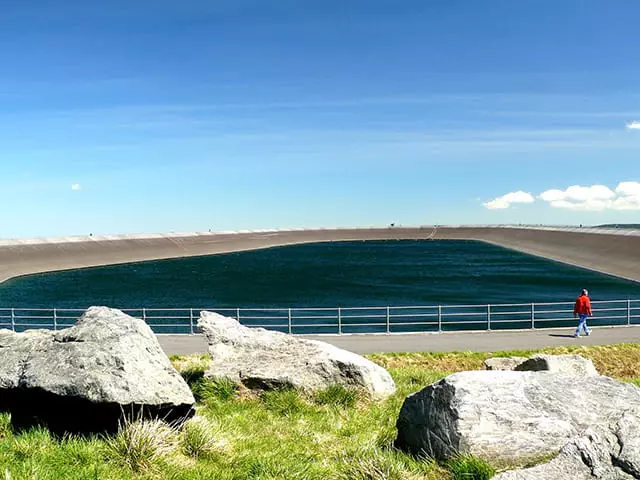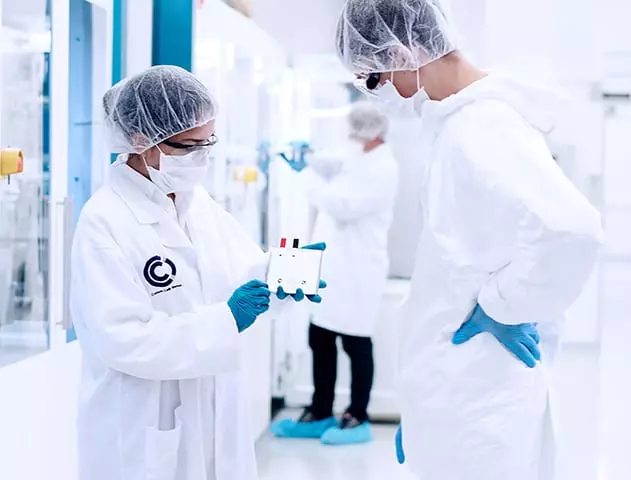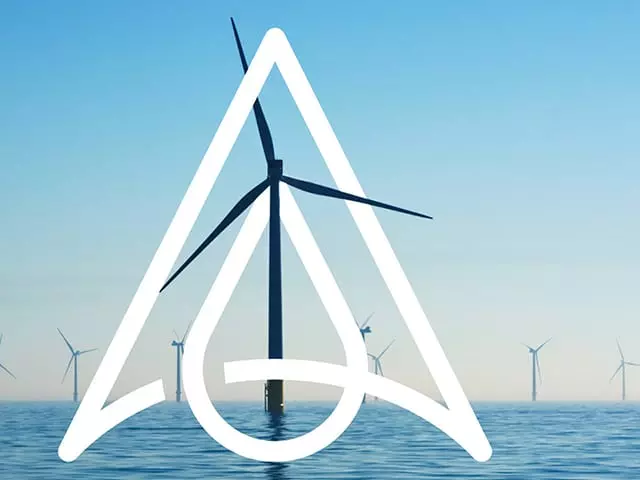Tell me...
What are you doing?
The other day at the Elbehafen Brunsbüttel. On my way to Heide, I make a detour to Germany's sixth-largest seaport. Groundbreaking things are happening here right now: In March, the Kreditanstalt für Wiederaufbau (on behalf of the German government), Gasunie and RWE signed the "Memorandum of Understanding" to quickly build Germany's first LNG terminal in Brunsbüttel. And only a short time later, RWE announced its intention to build an ammonia import terminal, i.e. a terminal for the import of green hydrogen, right next to it. High time I took a look on site! A gentleman is standing on the meadow on the banks of the Elbe. It is Frank Schnabel, Managing Director of Brunsbüttel Ports GmbH / SCHRAMM group.
We are currently working hard to position our port location as the leading import port for LNG and hydrogen, thus further expanding its nationwide importance as a hub for fossil and renewable energies as well as for Germany's future energy supply security...
Geschäftsführer der Brunsbüttel Ports GmbH / SCHRAMM group
Moin, Mr Schnabel, what are you doing here?
Can you imagine what it will look like in this place when green electricity from wind and sun in the form of green ammonia lands at your port by ship?" "Mrs Voss, I'll gladly return the question: what brings you to our port?" "Private and professional interest - in the spirit of the Energieküste," I enlighten him. After all, it's hard to imagine the front pages of the newspapers without Brunsbüttel Elbehafen. "You've got everything going at once! Is there still time for a break?" "We are currently working hard to position our port location as the leading import port for LNG and hydrogen, thus further expanding its nationwide importance as a hub for fossil and renewable energies as well as for Germany's future energy supply security.
Currently, events in Brunsbüttel are coming to a head.
After all, Brunsbüttel is suddenly being treated as a beacon for the decarbonisation of industrial society. "Not so suddenly," says Frank Schnabel. "With its direct access to the North Sea and the Baltic Sea and its connection to European inland waterways, the Brunsbüttel site offers ideal logistical conditions for these projects. And the plans for the LNG terminal have also been around for some years, only now they are more topical than ever."
Yes, I think, rarely has it been so urgent,
to promote energy sovereignty and climate neutrality in Germany. And where better to do that than on the Energieküste? As the SPD's top candidate Thomas Losse-Müller recently said: "Every wind turbine and every new solar module strengthens energy independence. If we get it right, Germany will not only gain energy sovereignty, but also make the indispensable leap towards climate neutrality." I must have been thinking out loud, because Frank Schnabel agrees: "That's exactly how it is. And that's why it's clear to us that we will fully and wholeheartedly support the LNG import and distribution terminal and the ammonia import terminal for the import of green hydrogen."
If we get it right, Germany will not only gain energy sovereignty, but also make the indispensable leap towards climate neutrality.
Geschäftsführer der Brunsbüttel Ports GmbH / SCHRAMM group
According to plans, the LNG terminal will land liquefied natural gas
and regasified into eight billion cubic metres of natural gas per year. Liquefied natural gas that will be transported to Brunsbüttel by tankship. In this way, Germany would be able to obtain natural gas from regions that cannot be reached by gas pipelines. The complementary ammonia import terminal will initially receive around 300,000 tonnes of green ammonia per year from 2026, with further expansion stages planned. But why ammonia in the first place? "Ammonia is an ideal hydrogen derivative. Compared to hydrogen, it has a higher energy density and is therefore easier to transport and store. Hydrogen from green electricity is therefore converted into ammonia and transported by ship to Brunsbüttel. Here it can be used directly, transported further or also converted into green hydrogen if required," explains Frank Schnabel. I am impressed. That sounds like a really good solution to meet our enormous additional demand for green hydrogen.
"And not only that, Mrs Voss",
adds Frank Schnabel. The LNG terminal can also be used later to convert the entire site to green molecules. Chancellor Olaf Scholz put it quite correctly: "An LNG terminal where we have gas arriving today can also receive green hydrogen tomorrow." This will create an energy import infrastructure that will transform the industrial and port location of Brunsbüttel into an energy location of the future with nationwide significance. I am convinced. "But when will it finally start? At the moment all I see here is meadow. It's green too, but it doesn't have much to do with green energies yet." "That's true," smiles Frank Schnabel. "The approval procedures, which German LNG Terminal GmbH has applied for as the investor in the LNG terminal, are in full swing." And with that, the Managing Director of Brunsbüttel Ports GmbH and the SCHRAMM group turns his face back to the areas where large quantities of energy will be imported, stored and distributed in the future.

